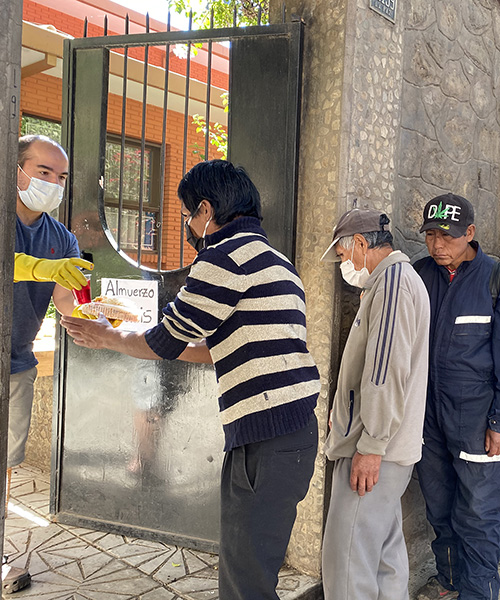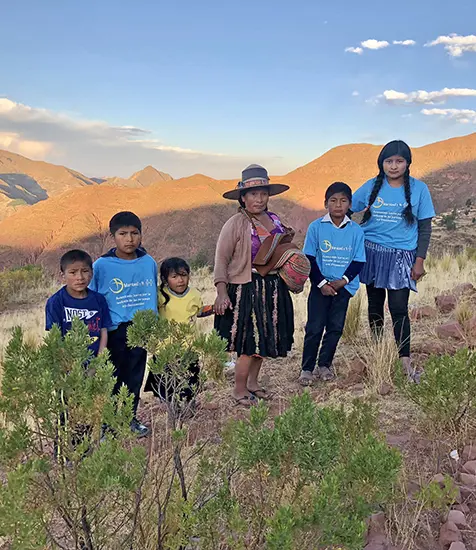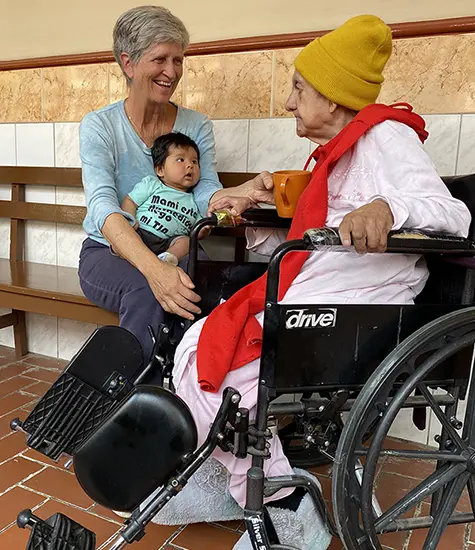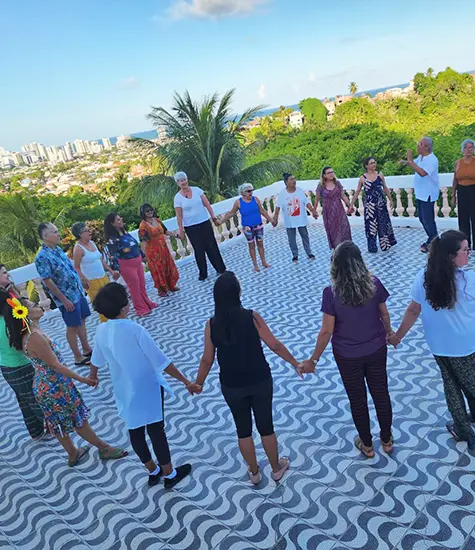
Juan Gomez handing out a plate of food during the strict coronavirus quarantine in Cochabamba. Bolivia.
Until a few months ago, for me, a plate of food was simply …
- something that we eat three times a day.
- something that often gets in the way of doing other things.
- something that we often rush to finish so we can continue with the other activities of the day.
- something that we often see as more of a chore.
But our recent experience of providing meals for those who, due to the difficult circumstances of a strict coronavirus quarantine, could not obtain it by themselves has given me a new perspective. Serving those most in need has helped me to understand better the true meaning and value of our daily meals.
Thanks to the new friends I made through this experience who live on the streets, I learned that a plate of food can be much more. My friends taught me that a plate of food is …
- uncertain for many, something they don’t know whether they will be able get each day.
- a blessing if you get to have at least one a day.
- synonymous with joy.
- reason enough to walk an hour and a half to obtain it, or to set out three hours before, to evade police controls.
- sufficient reason to pray the best prayer there is: “Thank you, God!”
- not only physical and emotional food but also spiritual.

Celia said about our food ministry, “This is heaven, thank you God.”
Giving a plate of food to our brother or sister in need is a way for us to show our gratitude for the many benefits and comforts we enjoy every day of our lives, and can be seen by that person who receives it as a loving gift directly from God.
I would love to live in a society whose structures do not deny food to many, so that a few can enjoy unnecessary luxuries and privileges. I would love to be part of a social model that cares for the welfare of all, and manages to provide all appropriate means to meet their basic needs. Meanwhile, as we strive toward that utopia, doing small acts of kindness for and with the forgotten, despised, rejected, separated and marginalized will be a rebellious act of love. And those actions will bring us closer to that utopia that we are all called to seek, to follow, to create and to work for.
When a crisis comes suddenly, as this pandemic hit us, it makes us go back to the “little things” and discover their true value. How often do we walk through life running from one place to another, not knowing what for or where we are going?
But going back to the little things makes us reconnect with our true calling. It helps us to get out of the confinement in ourselves and go out to meet the other. It makes us see our interconnection with everyone, everything and the Whole. It makes us understand that the only way to get ahead is through union and mutual help. It helps us see that life has a much deeper meaning than what we give to it.
Many people think of a missioner as someone who is preaching in the streets and main plazas. But from my personal experience, no preaching more beautiful and effective than when we put Jesus’ teachings into practice through concrete and coherent acts of love—something that all of us are called to, regardless of our vocation.
A small example of this — which made all the work and effort in this project even more worthwhile and highlighted the value of this beautiful experience — were the words of my little niece Luna who said, “Now I want to be like Juan, helping other people who need it.”
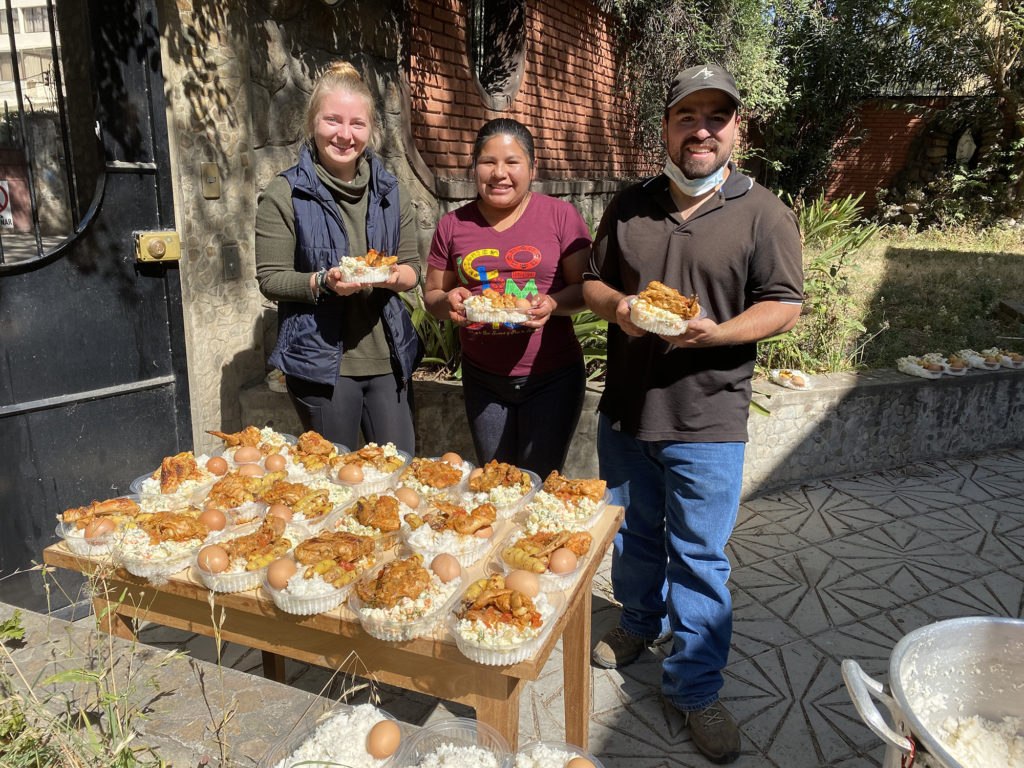
We celebrated the end of the quarantine with a special meal.

